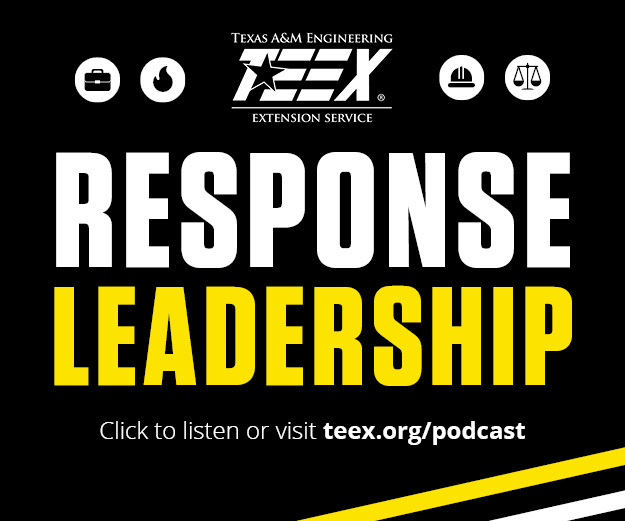ARTICLES OUT LOUD

Article Out Loud – Caring for the Affected at Family Assistance Centers
Jennifer Stansberry Miller
May 28, 2025
This is an article by Jennifer Stansberry Miller, an Article Out Loud from Domestic Preparedness, May 28, 2025. In moments of crisis, a well-executed family assistance center can offer clarity, connection, and compassion that victims’ families and survivors need to begin making sense of loss and change. Family assistance centers

Article Out Loud – Psychosocial Hazards: Preventing Human-Caused Disasters
I. David Daniels
May 28, 2025
This is an article by I. David Daniels, an Article Out Loud from Domestic Preparedness, May 28, 2025. Some of the greatest human-caused disasters in modern history can be attributed to unaddressed psychosocial hazards. Flawed safety cultures contribute to tragic outcomes in which concerns are not taken seriously and dissent

Article Out Loud – Meeting the Psychosocial Needs of Child Survivors
Emily Heard
May 21, 2025
This is an article by Emily Heard, an Article Out Loud from Domestic Preparedness, May 21, 2025. Without adequate support and resources, disasters can leave lasting psychological effects on children. In the United States, an estimated 14% of children experience a natural disaster during childhood. Learn how to help children

Article Out Loud – Perspective From the Field: How I Became an Accidental Disaster Mental Health Specialist
Adrienne J. Heinz
May 21, 2025
This is an article by Adrienne J. Heinz, an Article Out Loud from Domestic Preparedness, May 21, 2025. Dr. Adrienne Heinz and her young family have lived through multiple historic wildfires in Northern California. She decided to turn pain into purpose and mobilize community health leaders to build a mental

Article Out Loud – Not Lost in Translation: A Multilingual Corps Approach
Diana Sanchez-Vega
May 14, 2025
Disaster survivors and responders often face psychological hazards like acute stress disorder, depression, and post-traumatic stress. These issues are worsened in multilingual communities, where language barriers hinder communication and delay aid. Effectively addressing these challenges goes beyond basic translation or ad hoc interpreting to address the whole community.

Article Out Loud – Physical and Mental Injuries in First Responders: Why Wait?
Pascal Rodier
May 14, 2025
First responders undergo intense physical training to ensure they are physically prepared for emergencies. Yet despite the high-stress nature of their work, mental fitness is not given the same priority. Learn how to support first responders by fully integrating mental wellness into recruit training programs and seeing that it is
Follow Us
Get Instant Access
Subscribe today to Domestic Preparedness and get real-world insights for safer communities.
ARTICLES OUT LOUD

Article Out Loud – Caring for the Affected at Family Assistance Centers
May 28, 2025
This is an article by Jennifer Stansberry Miller, an Article Out Loud from Domestic Preparedness, May 28, 2025. In moments of crisis, a well-executed family assistance center can offer clarity, connection, and compassion that victims’ families and survivors need to begin making sense of loss and change. Family assistance centers

Article Out Loud – Psychosocial Hazards: Preventing Human-Caused Disasters
May 28, 2025
This is an article by I. David Daniels, an Article Out Loud from Domestic Preparedness, May 28, 2025. Some of the greatest human-caused disasters in modern history can be attributed to unaddressed psychosocial hazards. Flawed safety cultures contribute to tragic outcomes in which concerns are not taken seriously and dissent

Article Out Loud – Meeting the Psychosocial Needs of Child Survivors
May 21, 2025
This is an article by Emily Heard, an Article Out Loud from Domestic Preparedness, May 21, 2025. Without adequate support and resources, disasters can leave lasting psychological effects on children. In the United States, an estimated 14% of children experience a natural disaster during childhood. Learn how to help children

Article Out Loud – Perspective From the Field: How I Became an Accidental Disaster Mental Health Specialist
May 21, 2025
This is an article by Adrienne J. Heinz, an Article Out Loud from Domestic Preparedness, May 21, 2025. Dr. Adrienne Heinz and her young family have lived through multiple historic wildfires in Northern California. She decided to turn pain into purpose and mobilize community health leaders to build a mental

Article Out Loud – Not Lost in Translation: A Multilingual Corps Approach
May 14, 2025
Disaster survivors and responders often face psychological hazards like acute stress disorder, depression, and post-traumatic stress. These issues are worsened in multilingual communities, where language barriers hinder communication and delay aid. Effectively addressing these challenges goes beyond basic translation or ad hoc interpreting to address the whole community.

Article Out Loud – Physical and Mental Injuries in First Responders: Why Wait?
May 14, 2025
First responders undergo intense physical training to ensure they are physically prepared for emergencies. Yet despite the high-stress nature of their work, mental fitness is not given the same priority. Learn how to support first responders by fully integrating mental wellness into recruit training programs and seeing that it is
Follow Us
Get Instant Access
Subscribe today to Domestic Preparedness and get real-world insights for safer communities.



